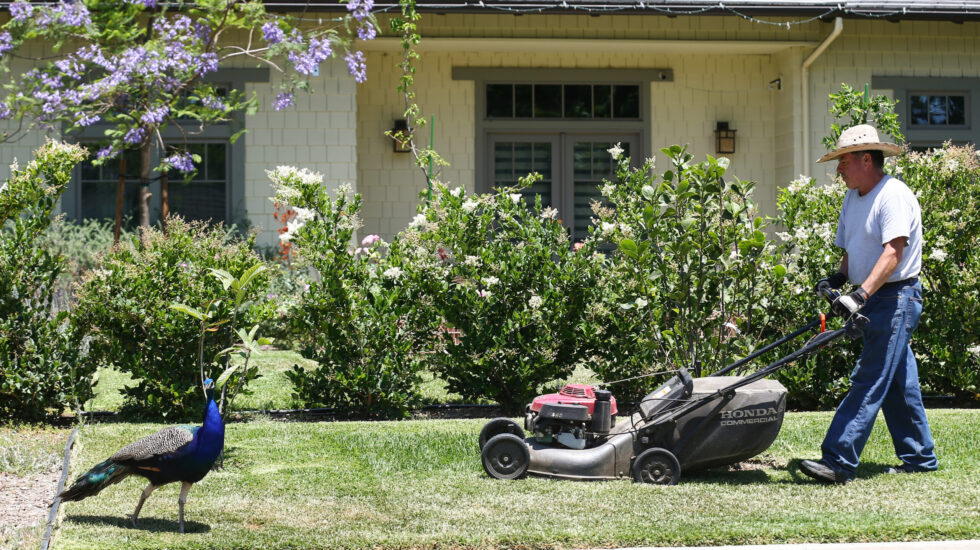California is set to become the first state in the nation to ban the sale of gas-powered mowers, leaf blowers, chainsaws and other lawn equipment. Gov. Gavin Newsom, a Democrat, signed a bill on Saturday that requires new small off-road engines (SOREs) to be emission free by 2024.
The state has set aside $30 million dollars to help landscaping companies make the transition.
“It’s time we phased out these super polluters,” said a co-author of the bill, Democratic California Assemblywoman Lorena Gonzalez, in a statement. She explained, “Small gas engines are not only bad for our environment and contributing to our climate crisis, they can cause asthma and other health issues for workers who use them.”
The Washington Post provides additional context:
According to the California Air Resources Board (CARB), operating a gas leaf blower for an hour can create as much smog-forming pollution as driving a Toyota Camry for 1,100 miles. The agency estimates that the state is home to some 14.4 million SOREs in the residential and commercial lawn equipment sector.
Nationally, the Department of Transportation data shows that in 2018, Americans used nearly 3 billion gallons of gasoline running lawn and garden equipment. That’s equivalent to the annual energy use of more than 3 million homes.
Ars Technica reports that “lawn mowers and leaf blowers are exceptional polluters. Their small engines spew outsize amounts of smog-forming NOx, cancer-causing volatile organic compounds, and lung-damaging particulate matter.” The outlet adds, “Even homeowners using the equipment for an hour or so would, under certain conditions, be exposed to pollution levels that exceeded national air quality standards for a 24-hour period.”
“Gov. Newsom signing (this law) really sets a strong course to not only his commitment to transitioning to zero emissions but also to cleaner air and healthier lungs,” said Will Barrett, director of clean air advocacy for the American Lung Association in California.
The Post reports that Andrew Bray, vice president of government relations for the National Association of Landscape Professionals, expressed issues with the bill:
Bray said the hurdles involved with the transition are multifold. Aside from upfront costs — a commercial electric lawn mower can cost more than twice its gas equivalent — he says it often doesn’t perform as well, with less power and shorter usage times. And, he added, the charging and repair infrastructure isn’t nearly robust enough yet.
California is often seen as a laboratory for progressive policies, particularly when it comes to the environment. Jamie Banks, the founder of the nonprofit Quiet Communities, told the Post that the new law is “going to wake people up to the possibility that transition is possible and may even become necessary.”



